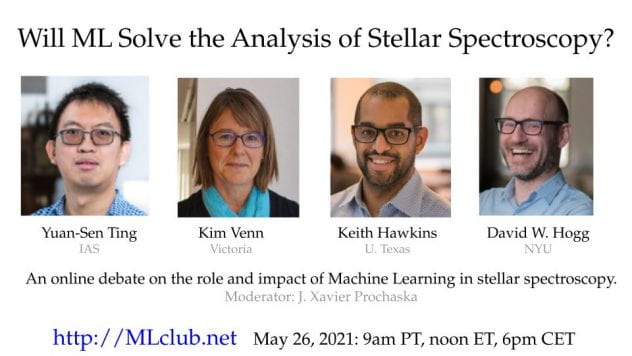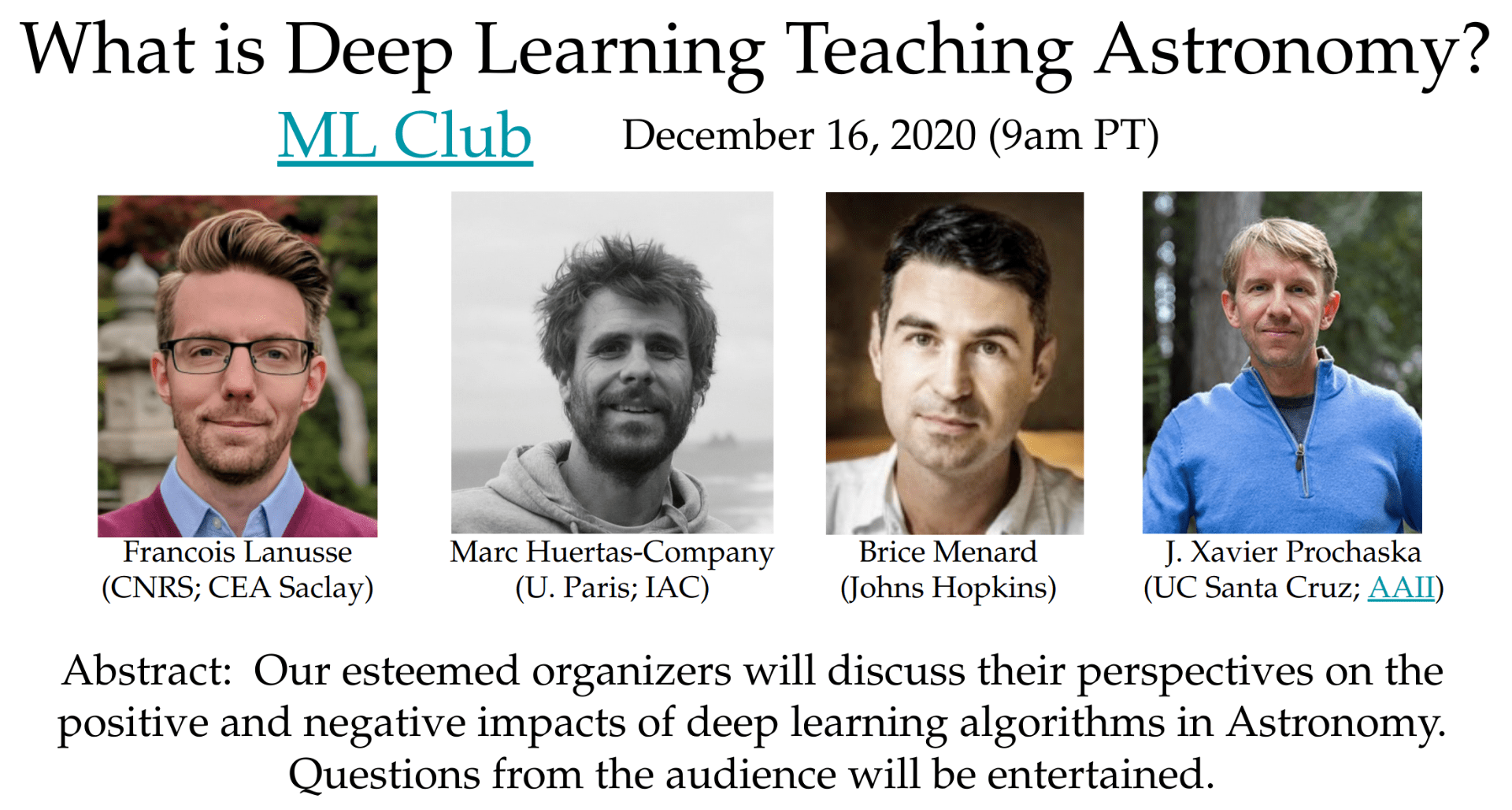Held Jointly with the Astrophysics Machine Learning Club — mlclub.net
When/where: April 8, 2020 at 12pm PT; Zoom only — https://ucsc.zoom.us/j/611217103
Title: Neural Networks with Euclidean Symmetry for Physical Sciences
Speaker: Tess E. Schmidt (LBNL)
Abstract: Neural networks are built for specific data types and assumptions about those data types are built into the operations of the neural network. For example, full-connected layers assume vector inputs are made of independent components and 2D convolutional layers assume that the same features can occur anywhere in an image. In this talk, I show how to build neural networks for the data types of physical systems, geometry and geometric tensors, which transform predictably under rotation, translation, and inversion — the symmetries of 3D Euclidean space. This is traditionally a challenging representation to use with neural networks because coordinates are sensitive to 3D rotations and translations and there is no canonical orientation for physical systems. I present a general neural network architecture that naturally handles 3D geometry and operates on the scalar, vector, and tensor fields that characterize physical systems. Our networks are locally equivariant to 3D rotations and translations at every layer. In this talk, I describe how the network achieves these equivariances and demonstrate the capabilities of our network using simple tasks. I also present applications of Euclidean neural networks to quantum chemistry and geometry generation using our Euclidean equivariant learning framework, e3nn.

